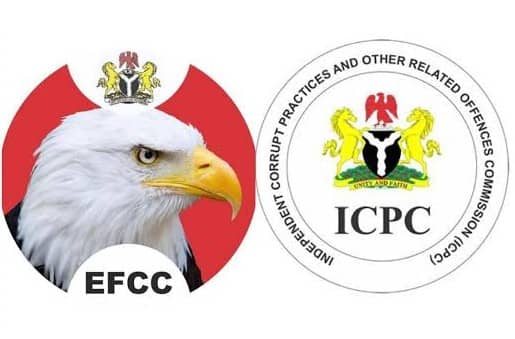The Economic and Financial Crimes Commission (EFCC) and the Independent Corrupt Practices Commission (ICPC) have issued stern warnings to civil servants, cautioning them against circumventing procurement processes for personal gain.
This warning was delivered during a two-day Integrity Innovation Lab conference for public servants in Abuja, organized by Accountability Lab Nigeria in collaboration with the MacArthur Foundation and Ford Foundation. The event aimed to foster solution-oriented discussions that would equip public servants with the knowledge and tools needed to promote accountability, integrity, and ethical leadership in their duties.
During the conference, representatives from the EFCC and ICPC emphasized key sections of their establishment Acts, highlighting the punitive measures that await any public servant found guilty of corrupt practices in procurement processes.
Speaking on behalf of EFCC Chairman Ola Olukoyede, Dr. Johnson Eze, a senior official of the commission, urged Nigerians to support the fight against corruption. He outlined the various efforts the EFCC has made to combat financial corruption, noting the challenges posed by criminals who continually exploit new avenues, particularly through the digital space.
“Very often, the loudest voices are those contributing to the problem,” Olukoyede remarked. “Expecting a single agency to solve every issue is unrealistic. Everyone must take responsibility in the fight against corruption.”
Olukoyede also dispelled the notion that the EFCC engages in double standards, reminding citizens that under Nigerian law, every suspect is presumed innocent until proven guilty.
ICPC Chairman Dr. Musa Aliyu, represented by Clifford Oparaodu, reiterated the commission’s commitment to closely monitoring procurement processes within the public sector. He urged civil servants to strictly adhere to established guidelines, emphasizing that doing so is essential to maintaining a clean financial management system.
Dasuki Arabi, Director General of the Bureau of Public Service Reforms (BPSR), represented by Emmanuel Achoda, Head of Audit, underscored the need to address gaps in service delivery within the public sector. He noted that public dissatisfaction with service delivery has led to a loss of trust and confidence in public officers.
“To achieve a world-class standard in public service comparable to developed nations, reliable and integrity-driven public officers are essential,” Arabi stated. “Countries with high levels of moral integrity tend to have lower levels of corruption.”
Friday Odeh, Country Director of Accountability Lab Nigeria, explained that the workshop was organized to bridge the significant trust gap between public servants and the citizens they serve.
“This is particularly important in the current climate of widespread discussions about governance,” Odeh said. “Recent protests across the country have highlighted the public’s demand for better governance and leadership. It’s crucial for public servants to build trust with citizens through accountability, transparency, and efficiency in service delivery. Quality services must become the norm, not the exception.”
